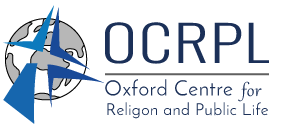Programme Credits
Below is the breakdown of how our courses are divided between these five areas. The MA in Christian Studies programme is structured so that a minimum of 10 courses will be core courses and seven courses will be selected by the learner from a variety of ’optional’ courses. There is an additional requirement of a thesis submission to complete the programme.
| Module Name | Code | Compulsory Course Credits | Optional Course Credits |
| Bible Culture and Context | MBCC | 8 | 8 |
| Christian History and Missions for Multiplying | MCHM | 8 | 4 |
| Christian Theology and Ethics | MCTE | 8 | 4 |
| Religions, Ideologies and Persecution | MRIP | 8 | 4 |
| Christian Ministry and Management | MCMM | 8 | 8 |
| Thesis | 12 | ||
| Total Credits | 52 | 28 | |
| 80 | |||
Timetable
| Date | Information |
| July/August | Entrance Exam, Interview and Orientation |
| July to November (1st Year) | Semester 1 |
| January to May (1st Year) | Semester 2 |
| July to November (2nd Year) | Semester 3 |
| January to May (2nd Year) | Semester 4 |
Duration of the Programme
The duration of the MA in Christian Studies programme is two years, consisting of four semesters of five months each. The first semester begins in July and runs until November, and the second semester runs from January until May.
Programme Breakdown (2022)
Module Descriptions
The philosophy of this programme, which has been developed from seven characteristics of The Good Shepherd, is broken down into five key modules.
Each module is split into two parts with a final exam at the end. The final grade for the course will be based on the successful completion of all the necessary requirements such as lesson contents, tutorial session participation, assignments, paper presentation and final examination. Generally, marks for each module are allocated as follows:
| Part 1 | Part 2 | Final Exam | Total | |
| Marks allocation | 30 | 30 | 40 | 100 |
Cluster 1: Bible, Culture and Context (MBCC) – 16 Credits
This module provides learners with an understanding of the Bible in relation to their culture and context. It will cover specific books of the Bible, and provide skills to interpret and apply Scripture to the various areas of their ministry.
Cluster 2: Christian History and Missions for Multiplying (MCHM) – 12 Credits
This module provides learners with an understanding regarding Christian mission and history. It encourages learners to engage with the wider context of Global Christianity and relate their own experiences to this context.
Cluster 3: Christian Theology and Ethics (MCTE) – 12 Credits
This module provides learners with an understanding of key theological and ethical issues. It will enable learners to acquire knowledge and develop skills necessary to lead and instruct their church and community.
Cluster 4: Religions, Ideologies and Persecution (MRIP) – 8 Credits
This module provides learners with practical skills and knowledge to navigate their various religious-cultural contexts. It will give them tools to faithfully respond to the challenges of other religions, worldviews, and persecution.
Cluster 5: Christian Ministry in Management (MCMM) – 16 Credits
This module provides learners with an awareness and understanding of key ministry areas and skills required for effective ministry.
Thesis Writing – 12 Credits
An original contribution at the Master’s level in about 20,000 to 25,000 words.
About the MA in Christian Studies Programme
The online theological education method used for the MA in Christian Studies programme is a combination of online tutorial meetings and structured learning through uploaded lessons/content available in the LMS. A large part of the studies will be self-paced learning. There will be expert tutors/faculty in each subject who will assist and guide the students once a week or whenever required.
Each subject (course) is divided into two sections. In the first section/Part I, the students will learn through uploaded lessons/content in the LMS. Part I is a ten-week course, and includes reading, completing learning activities, submitting assignments and engaging in the discussion forum during the weekly tutorial (based on the lessons you are required to learn).
Second section/part II comprises of seven weeks. This includes reading(s) in each day’s lesson, followed by discussion/interaction with the tutor once a week. There will also be a book/article review, essay writing/assignments, discussion questions and paper presentations based on the subject, all completed through the LMS. Students will choose the relevant topics for their assignment. All the assignments should be practical, and should relate to the student’s own socio-cultural and religious context.
Methodology
- Self-learning through structured learning in the LMS in the form of discussion questions, reflection answers and weekly tests or assignments, complemented with weekly group tutorials under a qualified tutor.
Assessments and written assignments:
- Weekly assessments and monitored progress within a tutorial group through face-to-face sessions.
- There will be essays/assignments of approximately 2,500 words per subject per semester.
- Some courses will also include paper presentations and practicums as a course requirement.
Thesis Writing:
Completing a thesis is a requirement for each student (12 credits). Thesis writing starts in the second year from the first semester onwards. Each student will select a topic related to his or her area of interest. For instance, students who are in the Christian ministry cluster will select a topic from the Christian ministry branch of studies. A multi-disciplinary approach will also be encouraged.
The thesis should be around 20,000–25,000 words. Research skills will be taught in the first year, so that the student will have become familiar with the writing and research methods required.
A research guide/subject expert will supervise each student.


